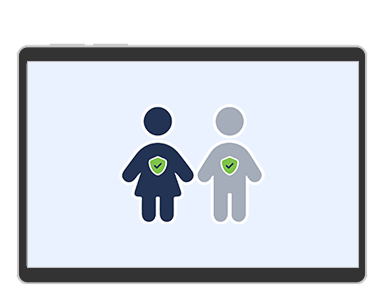
Spotlight on Linguistics: Sexual Assault
May 14th 2025 | 4min read
Supporting our Goal to Create Safer Digital Environments for Children
At Senso.cloud, our mission is to be the leader in student online safety, committed to helping protect children online through innovative, cutting-edge solutions.
As part of this mission, we continually invest in research that deepens our understanding of how language is used in online spaces, especially when it concerns sensitive and critical issues like sexual assault. Dr Charlotte-Rose Kennedy, our Safeguarding Language Specialist, shares findings from her linguistic analysis of over 780,000 social media posts and comments. Her work reveals not only how people talk about sexual assault online, but also highlights widespread uncertainty and a need for clearer education around consent and abuse. These insights help inform the development of better safeguarding strategies, supporting our goal to create safer digital environments for children and young people.

How People Question and Define Sexual Assault on Social Media
“I investigated a 782,119-word dataset of social media posts and comments about sexual assault, finding that the verbs ‘be’, ‘was’ and ‘is’ frequently occurred in close proximity to the nouns ‘assault’, ‘abuse’ and ‘rape’. Analysing the contexts in which these verbs and nouns co-occurred revealed two overarching patterns of use:
- Social media posts that expressed uncertainty or sought clarification as to whether what the person posting experienced was sexual assault (e.g. ‘I’m not sure if it was rape’, ‘could this be abuse?’, ‘I want to know if what happened was sexual assault’).
- Comments responding to the social media posts, either confirming or defining sexual assault (e.g. ‘that definitely was rape’, ‘it is abuse’, ‘if you didn’t consent, it was assault’).
Uncertainty and Understanding:
Why Clearer Conversations Around Sexual Assault Matter
“The prevalence of uncertainty in these social media posts suggests that what is considered sexual assault is not always clearly understood.
This emphasises the importance of continued education around the definitions of sexual assault and consent, which plays an essential part in both preventing assault and empowering victims to come forward.”
Build a Stronger Student Safety Strategy
With powerful safety tools and expert support, we help ensure your students stay protected.
Reach out to learn more about our safeguarding tools and how we can help you protect students.
